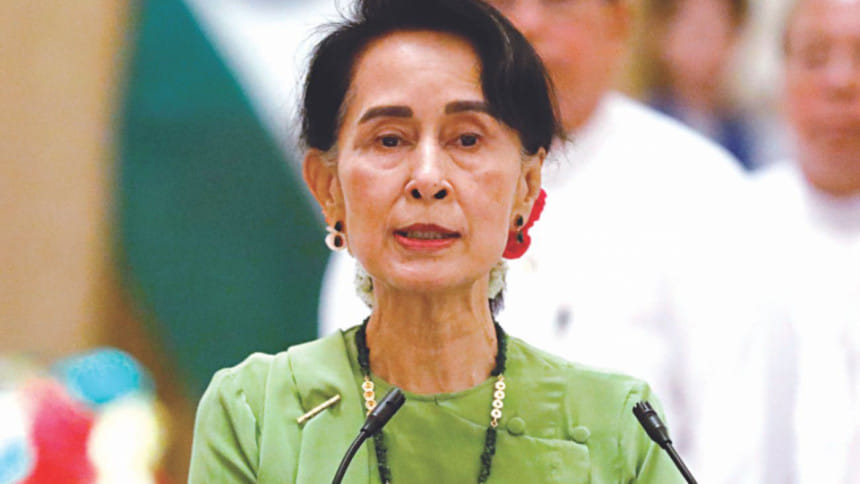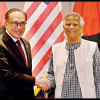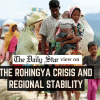So low, so fast

Seldom, if ever, in history has a world hero fallen so fast into disrepute. Never have so many people and organisations representing world conscience turned red in the face because of the behavior of a person whom they had once adored, endorsed and praised for championing the cause of human rights and dignity.
Her own persecution at the hands of the Myanmar junta had deeply worried the world for long. But today the same world is worried because of her joining hands with the persecutors of the Rohingya people.
Not long before in 2009 Amnesty International had awarded her its most prestigious honour -- the "ambassador of conscience" award.
Today Amnesty views "what is unfolding in front of our eyes can be described as ethnic cleansing, in legal terms these are crimes against humanity". And Suu Kyi is not only a denier of the genocide that is being perpetrated in Myanmar but a vocal supporter of the marauding army.
United States Holocaust Memorial Museum set up by the US government had awarded Suu Kyi with its prestigious Elie Wiesel Award for her stance against hatred, genocide and abuse of human dignity. On September 8 this year, the museum observed "today, these ideals appear absent in the defence of Burma's Rohingya population. We now implore her to … uphold those very ideals and work to stop the long standing persecution and violence…"
When she was awarded the US Congressional Medal in 2012, influential Republican senator Johan McCain said Suu Kyi was his hero. On September 9 this year he co-introduced a bipartisan resolution in senate on the atrocity on the Rohingya and urged Suu Kyi to "live up to her inspiring words upon receiving the 2012 Nobel Peace Prize with respect to ethnic reconciliation in Burma and in particular to address the historic and brutal repression of the Rohingya in Rakhine state."
South African anti-apartheid leader and Nobel Peace Prize winner Archbishop Desmond Tutu was so distraught by Suu Kyi's role in the Rohingya massacre that he wrote an open letter where he said "if the political price of your ascension to the highest office in Myanmar is your silence, the price is surely too steep."
Nobel Peace Prize winner Shirin Ebadi has accused Suu Kyi of having "turned her back on democracy once she came to power" and said the Burmese leader has failed to live up to the prize's ideals.
The youngest Nobel winner, Malala Yousafzai, has condemned Suu Kyi's inaction and said, "Over the last several years, I have repeatedly condemned this tragic and shameful treatment. I am still waiting for my fellow Nobel laureate Aung San Suu Kyi to do the same."
A global campaign has begun urging the Nobel Committee to strip the Myanmar leader of her award and more than 400,000 have signed a petition calling for Suu Kyi to be stripped of her award.
Nevertheless, the committee has said it only awards people for the roles and does not revoke for their actions afterwards.
Despite everything, she remains unfeeling and untouched although the Holocaust Memorial Museum says it is now deeply concerned about the "ongoing mass atrocities, including the risk of genocide".
Bangladesh had joined the global voice demanding her release and freedom during her imprisoned days, and rejoiced when she gained votes and acquired her place as leader though denied her rightful place as the head of the government. Today, like the rest of the world's democracy loving people, Bangladesh stands aghast at the role of a once "icon of democracy".

 For all latest news, follow The Daily Star's Google News channel.
For all latest news, follow The Daily Star's Google News channel. 









Comments